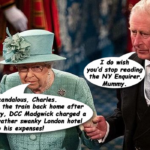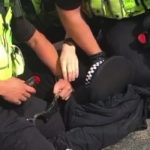Misogyny, Hate Crime, HeForShe and NYP
by TIM HICKS.
~~~~~
The Voyeurism Bill
An amendment to the Voyeurism Bill (which will criminalise taking photographs up women’s skirts), which would have defined misogyny as a hate crime and allowed more severe sentences on men convicted of crimes against women, if they were motivated by misogyny, has been rejected by the House of Commons. Instead, the Law Commission will review how sex and gender are treated currently and if a change in the law is required to make misogyny a hate crime. Comprehensive BBC report here.
I am happy to report that the Voyeurism Bill was approved and will now go forward to the House of Lords. Hopefully it will become law and this gap in the law on harassment of women will be closed.
According to this BBC article. Labour MP Ms Stella Creasy who moved the amendment “has called for an extension of a pilot project by Nottinghamshire Police, which has for two years been recording misogynistic behaviour as either hate crime or hate incidents, depending on whether or not it is criminal.”
CPS Policy on Hate Crimes and Misogyny
According to the Crown Prosecution Service (CPS) website:
“The police and the CPS have agreed the following definition for identifying and flagging hate crimes:
Any criminal offence which is perceived by the victim or any other person, to be motivated by hostility or prejudice, based on a person’s disability or perceived disability; race or perceived race; or religion or perceived religion; or sexual orientation or perceived sexual orientation or transgender identity or perceived transgender identity.
Under the jointly agreed CPS and Police definition of hate crime above, misogyny is not included in the five strands of hate crime recognised by the CPS:
1) Race, ethnicity or nationality.
2) Gender identity.
3) Religion, faith or belief.
4) Sexual orientation
In response to an enquiry from the NYE, the CPS confirmed that:
“Gender-based crimes are a priority for the CPS and we take their prosecution very seriously. We recognise that women are disproportionately affected by some offences, such as domestic abuse and sexual offending, which may include an element of misogyny.
However at the moment there is no legislative framework which would enable it to prosecute misogyny as a hate crime and the sentence uplift which can be applied to other types of hate crime cannot be applied in cases involving misogyny”.
The CPS recognises the impact of crimes committed by women against men, particularly in domestic abuse situations. Formal statement here.
The Nottinghamshire Police “Pilot Scheme”
Nottinghamshire Police were the first force to include misogyny as a hate crime in April 2016. Excellent article from the Telegraph covering the implementation of the policy here.
This was reported in the national press as a pilot scheme, examples here, here, here and here, but this aspect of the media coverage is completely inaccurate and has no basis in fact. A spokesperson for Nottinghamshire Police confirmed to the NYE:
“Nottinghamshire Police adopted its misogynistic hate crime policy in April 2016. The policy was implemented by the former Chief Constable Sue Fish.”
The policy is still being applied and is a permanent change in Nottinghamshire Police force policy. It was never a pilot scheme. The NYE is happy to provide clarification on this and correct the nationals, thereby upholding its reputation for accurate journalism.
According to this Daily Telegraph article Nottinghamshire Police has been recording offences involving sexism as misogynistic to encourage more women to come forward and report it to police. Whilst this has been supported by the public, it has had a very negative response amongst police officers.
Police officers have been quoted as stating that complaints concerned “some behaviours that were fairly trivial, did not warrant a police response and that it involved a waste of resources”. This Freedom of Information response by Nottinghamshire Police would seem to support this, because of the seventy nine complaints, only thirty one (39%) constituted crimes. The remainder were recorded as misogynistic hate incidents not amounting to a crime.
The current Nottinghamshire Police definition of hate crime is shown below:
“A hate crime is any incident where someone is targeted because of their identity. Hate crime can take any shape and isn’t always illegal behaviour, but it is always motivated by prejudice, often in the following areas:
- Race
- Religion
- Sexual orientation
- Disability
- Transgender
- Misogyny
- Alternative sub-culture e.g. Goth
We will investigate hate crimes using all of the powers available to us, including laws protecting you from personal and online abuse. This can lead to us making arrests and using bail conditions to keep you safe. It is also sometimes possible to get a bigger sentence for hate crimes at court.”
The Nottinghamshire Police definition conflicts with CPS policy above because it additionally includes misogyny (7) and alternative sub-cultures (8) which the CPS excludes.
In addition to Nottinghamshire Police, North Yorkshire, Northamptonshire, and Avon and Somerset Police (ASP) have also changed their hate crime policy, although there is no national policy or authorisation for this and no legislation to support it.
North Yorkshire Police (NYP) Policy on Misogyny
NYP recently published a statement on its hate crime policy, which can be seen below. There is a link to some examples showing how the sentences of criminals who are convicted of a criminal offence are uplifted, if the offence is determined to have been a hate crime.
https://northyorkshire.police.uk/news/hate-crime-sentences-published/
The article states “In May 2017 North Yorkshire Police added misogyny into its hate crime policy”.
https://northyorkshire.police.uk/what-we-do/tackling-crime/crimes-against-the-person/hate-crime/
Superintendent Mark Khan (pictured above) is the NYP lead for hate crime and is also tasked with embedding the principles of the UN Women Solidarity Movement for Gender Equality HeForShe across NYP. NYP statement on HeForShe here
Some personal opinions and concerns about the way misogyny has been designated as a hate crime.
For examples of the effect of public sexual harassment of women please see the video here and here.
- Discrimination. A fundamental principle of any legal system is that we are all equal under the law. Another is that the police service enforces the law impartially and without fear or favour. The force policy implemented by Nottinghamshire Police contravene these principles. Unlike the other five categories of hate crimes, misogyny is applied selectively. It does not criminalise anyone that offends against anyone else based on gender, it only criminalises men for gender based crime:
- Misandry is not defined as a hate crime, although it is a crime committed against another person on the basis of his gender. Whilst it is not nearly as widespread as harassment of women, it still occurs, particularly in the context of domestic violence by women against men. As with all domestic violence, it can have a devastating effect on victims. For some examples see here, here and here.
Misandrist offences can be particularly damaging when inflicted upon children. As an example, the NYE has been investigating serial killer Christopher Halliwell recently. Halliwell was brutally abused in his childhood by his mother, whom I suspect may have been a misandrist. This undoubtedly influenced his transition into a serial killer of women.
As with misogyny, misandry can be committed by both men and women. An example would be Gary Stretch, who assisted Joanna Dennehy, to murder three men and attempt to murder two others in a misandrist killing spree. Dennehy specifically targeted men during her attacks and stated she did not want to kill women.
Unlike Nottinghamshire Police, North Yorkshire Police; Northamptonshire and ASP do not specify misogyny alone as a gender based hate crime, their policies refer to gender based crime in its entirety, including misandry. Northamptonshire Police policy here. ASP policy here. All three forces obviously took care not to be discriminatory. However this has been ignored by Nottinghamshire Police.
- Failure to protect women from misogynistic crimes. Misogynistic crimes against women by women are excluded. An example would be Rosemarie West, who helped her husband Fred West rape, torture and murder twelve women.
- Ambiguity. There is no accepted statutory definition of misogyny, or of what constitutes evidence of a misogynistic criminal intent. To cover this, hate crime is defined as having occurred solely on the basis of the alleged victims feelings. This is too vague and effectively means that any act by a man e.g. striking up a conversation in a nightclub could be treated as a misogynistic hate crime or misogynistic hate incident.
- Extent. The breadth of offending that could be classified as misogynistic is very wide. Any petty matter e.g. wolf whistling could result in a man being arrested and convicted of a hate crime. This will stay on his criminal record as such, equating him with sexual offenders. Making him unemployable in any occupation involving contact with women or female children and possibly leading to him being placed on the sex offenders register. It could also affect his rights to contact with his children if any of them are daughters.
- Relevance. Once the new Voyeurism Bill is law, there is no intention to add any new offence to the statute book. All offensive behaviour towards women are currently covered by a criminal offence, with appropriate sentencing guidelines.
- Inconsistency. As a result of four Chief Constables introducing different uncoordinated force policies in their force area, the law is not now being applied consistently across the UK. There are now five different rules of law on this subject in the UK, one each in North Yorkshire, Northamptonshire, Avon and Somerset, and Nottinghamshire. Then another for the rest of England and Wales, Scotland and Northern Ireland.
- Distraction. Making misogyny a hate crime runs the risk that the police focussing on trivial offences, distracting them from investigating more serious crimes against women. As an example, conduct by a man which does not constitute a criminal offence is nevertheless being recorded as a misogynistic hate crime “incident” by Nottinghamshire and North Yorkshire Police.
- Misclassification. Some behaviours held out as misogynistic hate crimes e.g. wolf whistling are not motivated by hatred and should not therefore be prosecuted as a misogynistic hate crime. In France there is an offence of “Street Sexual Harassment” which deals with the problem without categorising it as a hate crime. This appears to be successful; BBC report here.
- Public confusion. The information released to the public on official websites by the CPS, NYP and Nottinghamshire Police has been confused, contradictory and misleading. This is probably because of the inconsistent way it has been implemented, without adequate consultation:
- An article from York Press dated the 9th of March 2017 on the change in policy by NYP quoting the then Deputy Chief Constable (since promoted to Chief Constable ) Lisa Winward can be read here. The article states “DCC Winward said on Wednesday that the force would now classify misogyny as a hate crime and officers would be trained in the recognition and prosecution of the offence in the coming months”. In fact CPS policy is that misogyny cannot be prosecuted as a hate crime.
- Although NYP policy is not discriminatory and defines all gender based crimes as hate crime including misandry, nowhere in the information released by NYP does it say that. Clearly the information issued by the NYP Corporate Communications Department has been inadequate and has given a misleading impression of force policy. As an example, this NYP Press Release focuses solely on abuse of women by men and does not mention that all gender based crimes are included
- In her comments on this new policy in the official video on hate crime, (here) Chief Constable Sue Fish states that Nottinghamshire Police are recording a hate crime when victims believe the crime or incident has occurred because of their “gender”. The term “gender” includes men and women and should therefore include misandry, but Chief Constable Fish then goes on to say that “gender” only applies to women and misogyny. Indicating that she does not understand the implications of her own force’s policy, or that it is discriminatory.
- The change in Nottinghamshire Police policy was described in the national press as a pilot scheme, when in fact it was a permanent change in police policy. Nottinghamshire Police have made no attempt to correct this misleading impression and as a result, a major change in policing practice has been misleadingly described and introduced by stealth.
- The CPS definition of hate crime from its website states that the CPS definition (which excludes misogyny) has been agreed with the police. In fact this is no longer true because four Chief Constables have chosen to unilaterally abandon this agreement and introduce their own force policies without discussion with the CPS. Consequently the CPS statement is now incorrect and misleading, but has not been corrected.
- Failure of process. The normal processes that occur in implementing a new policy or law on a controversial measure have not occurred.
- There is no legislation authorising misogyny to be treated as a hate crime.
- Parliament has not debated the suitability of new legislation.
- The College of Policing has confirmed to the NYE that it has not issued any guidance on policing misogynistic hate crimes, because there is no legislation covering this topic.
- The National Police Chiefs Council (NPCC) currently has no position on monitoring Misogyny based hate crime. A NPCC spokesman said: “Police forces in England, Wales and Northern Ireland annually monitor five strands of hate crime. Police chiefs will be presented with a paper that asks them to consider the case for monitoring gender-based hate crime in the same way.” The consultation is still underway.
- As stated above, the CPS does not recognise misogyny as a hate crime and will not prosecute it. There is no CPS guidance on charging.
- Abuse of police powers. The supreme law making authority in the UK is Parliament, which recently rejected an amendment to the Voyeurism Bill that would have made misogyny a hate crime. It directed that a review by the Law Commission should occur before any action was taken.
There has recently been a review in Scotland conducted by the distinguished judge Lord Bracadale, which rejected implementing misogyny as a hate crime, recommending instead a non-discriminatory policy of including gender and age abuse as hate crimes. More information here and here. So it is entirely possible that the Law Society and NPCC reviews could reject treating misogyny as a hate crime, as the Scottish review did.
Yet four UK police forces are still continuing to record an offence against a woman as a misogynistic hate crime or incident not amounting to a crime. This defies a decision by parliament, contravenes the policy agreed between the police and the CPS and pre-judges the outcome of the Law Society and NPCC reviews.
That is a serious abuse of power by the four Chief Constables concerned.
- Erosion of civil liberties. In response to an enquiry from the NYE, a spokesperson from Northamptonshire Police confirmed: “Northamptonshire Police is continuing to record all gender related hate crime, pending the outcome of the NPCC review”. This of course ignores the fact that at present there is no definition or offence of gender based hate crime and that as in Scotland, the NPCC and Law Commission reviews may recommend against implementing one. In which case four police forces in the UK will have recorded non-existent offences or incidents against men who have not committed any offence or any hate crime offence.
- Lack of consensus amongst Chief Constables. Other than Northamptonshire, Nottinghamshire, Avon and Somerset, and NYP, all the other thirty nine police forces in England and Wales, the Police Service of Northern Ireland, Police Scotland and the four national special forces have not taken this step and remain compliant with CPS policy. This indicates there is opposition amongst Chief Police Officers to this policy change in its present form. Hence perhaps why they preferred to wait for a full and informed consultation process in the normal way, before implementing any change.
Summary
Parliament was right to order a review by the law Commission so that this important area of policing can be considered carefully and implemented in a clear, consistent, non-discriminatory and reasonable way. The NPCC was also correct to order a review across all police forces to come to a considered and consistent position for the police service as a whole, in the normal way.
However, as a result of four Chief Constables jumping the gun in the race to be seen as politically correct, the situation on enforcing the law on offensive behaviour towards women is currently inconsistently applied and contradictory. Below are some examples of the inconsistencies and confusion arising from the above factors:
- A man photographing a woman without her consent in Nottinghamshire is now committing a hate crime, but not in the rest of the UK, where NPCC policy prohibits photography in a public place being treated as a crime. (The exceptions to this rule are specific offences of voyeurism, or under the Prevention of Terrorism and Official Secrets Acts).
- Wolf whistling is now a misogynistic hate crime in four force areas, but not anywhere else. The picture below shows HRH Catherine Duchess of Cambridge behaving with typical dignity, tolerance and good humour, whilst being wolf whistled. In North Yorkshire, all these men would have been accused of a misogynistic hate crime. Please see this group of women voicing opposition to criminalising wolf whistling.

- Serena Williams recently complained that umpire Marc Ramos was a sexist. In North Yorkshire, Avon, Somerset, Northamptonshire and Nottinghamshire, the Umpire could be accused by the police of committing a misogynistic hate crime, but fortunately not in the rest of the world.
- Any cartoon of a woman drawn by a man that causes her offence and she believes is sexist could result in the cartoonist being prosecuted for committing a misogynistic hate crime. This one below by the NYE’s CodHead of Police and Crime Commissioner Julia Mulligan showing her sat in the lap of a man (the swiftly “departed overnight” Chief Constable Dave Jones) and being manipulated by him as his puppet, could now be a misogynistic hate crime in North Yorkshire.

- Nottinghamshire Police define a man taking a photograph of a woman in a public place without her consent, as a misogynistic hate crime, but not if a female photographer woman takes a picture. This inhibits the media from photographing public events involving women unless they hire female photographers. It also prevents public figures such as sportswomen and politicians being photographed by a man without her written consent. It will also inhibit men from working as photographers in a public place.
When asked for comment and specifically, if Nottinghamshire Police would now be suspending its policy on misogynistic hate crime, pending the outcome of the Law Commission review, a spokesperson said:
“While your article contains some facts, it also contains personal opinion which makes it difficult for us to comment. You, as a citizen journalist, have of course every right to your opinion and we respect that. If you require any clarification on whether some of the facts are accurate then that is something we can look at but in terms of the article as a whole, it is for you to determine how that reads and what is published.
“In answer to your last set of questions:
-
No, the force won’t be suspending the policy.
-
The policy is about recording. It’s about learning what is happening and giving the force a framework to better understand what is happening to women, who by, where and when.”
This is inconsistent with the public statements previously made by Nottinghamshire Police. It seems to me misleading and indicative of confusion over the policy within Nottinghamshire Police for it to state that the policy is about recording. When the force website states that misogyny is a hate crime and that Nottinghamshire Police will:
“investigate hate crimes using all of the powers available to us, including laws protecting you from personal and online abuse. This can lead to us making arrests and using bail conditions to keep you safe. It is also sometimes possible to get a bigger sentence for hate crimes at court.”
In my opinion, if the force policy is only about recording, this should be made clear in the policy statement. Instead of claiming it is about making “arrests” and “getting bigger sentences”. It appears that Nottinghamshire Police are back-peddling, in an attempt to evade admitting that implementing a discriminatory heterophobic policy was a mistake.
However, I will let the reader come to his or her own conclusions.
Ms Stella Creasy, the CPS, Nottinghamshire Police, ASP Northamptonshire Police and NYP were provided with a draft of this article and given the opportunity to comment. Ms Creasy and the CPS chose not to comment. In particular, the CPS did not comment on the concern that it was wrong for it to state that the definition of hate crime it uses had been agreed with the police, when in fact four police forces use a different definition.
NYP was asked by the NYE to clarify what the impact of adding misogyny into its hate crime policy was in real terms and to provide a copy of the policy, but did not respond. However, it did respond stating that it included misandry in its hate crime policy and was satisfied that its hate crime policy was not discriminatory. When I pointed out that its definition of hate crime was contrary to the definition agreed with the CPS it did not address this issue.



























Comments are closed.